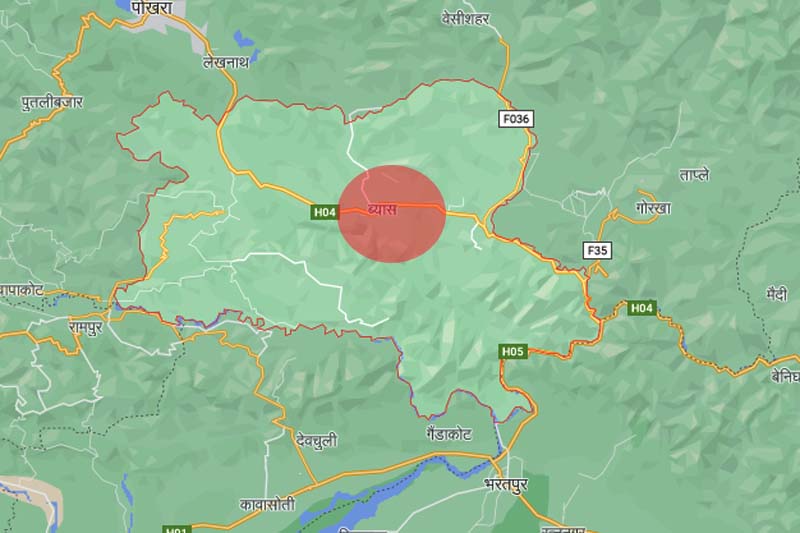

The local level of Tanahun has adopted a policy of resolving the issue through reconciliation. The local level of the district has adopted the policy of resolving the issues to be registered in the Judicial Committee through conciliation.
The Judicial Committee headed by the Deputy Chief or Vice-Chairman has the power to hear cases of various natures. The local level has been dismissing the issue according to the same authority. Various municipalities have also set up reconciliation centers at Vadastar to settle issues at the local level. Byas Municipality has dismissed nine cases in the current fiscal year 2078/79 BS. Deputy Chief of the municipality Mira Joshi informed that out of the 11 cases registered in the previous fiscal year and 13 new cases were registered, seven cases have been settled. Other issues are yet to be resolved.
The municipality has established reconciliation centers in each ward. The municipality has set up a reconciliation center in the ward with the objective of resolving general disputes in the ward itself. “After the establishment of the reconciliation center, the number of cases coming to the Judicial Committee has decreased,” he said. The reconciliation center has been set up with the objective of reducing the pressure of cases in the Judicial Committee and resolving general disputes from the ward. “Sending all the cases to the Judicial Committee increases the pressure. General disputes can be resolved through discussion in the ward itself,” said Joshi.
The municipality has already given reconciliation training to three people from each ward. He is listed as the conciliator of the municipality. Only cases that cannot be resolved at the conciliation center are referred to the Judicial Committee. “Some cases have to be decided by the judicial committee. Such cases come to the judicial committee from the conciliation center,” he said. “We will settle the remaining cases from the conciliation center.”
Pursuant to the Local Government Act, 2074 BS, a Judicial Committee has been formed in the municipality under the coordination of the Deputy Chief. There is a legal provision that some cases registered with the Judicial Committee should be decided by the Judicial Committee and some cases should be settled amicably. Reconciliation in the promotion of justice, human rights and civic interest in the society by helping to resolve disputes in a participatory manner by empowering women, Dalits, Adivasi, Janajati, Madhesi, Muslim, Backward Classes and Marginalized communities to support local development process by maintaining peace, harmony and reconciliation at local level. It is believed that assistance will come from the center.
The Bandipur municipality has dismissed 19 cases in the current fiscal year. According to Karuna Gurung, vice-chairperson of the village municipality and coordinator of the judicial committee, issues such as gender-based violence, manachamal and contempt for senior citizens have been dismissed. He informed that three divorce cases have been sent to the court. Reconciliation has given priority to the issue. Disputes such as insults, compensation, land boundary disputes, and domestic disputes are registered in the Judicial Committee. “We have settled all the registered disputes. In any dispute, we have decided on the basis of law and in any case, we have reached a compromise, ”said Gurung.
The Judicial Committee has initially studied whether the petition received by the committee falls under its jurisdiction or not. “We will take the process forward by registering a petition saying that it falls under the jurisdiction of the Judicial Committee,” said Gurung. In some disputes, the administration’s help should be sought. ”
The Aabu Khaireni municipality has also been resolving the issue through reconciliation. According to Vice-Chairperson Pushpa Devi Shrestha, the village municipality has resolved five of the eight cases registered through reconciliation in the current fiscal year. “We resolve the dispute by discussing the registered issues with both the parties,” he said. Shrestha said that cases falling under the jurisdiction of the Judicial Committee are handled by the Judicial Committee and cases outside the jurisdiction are sent to the court. The Judicial Committee has four members and one advisor.